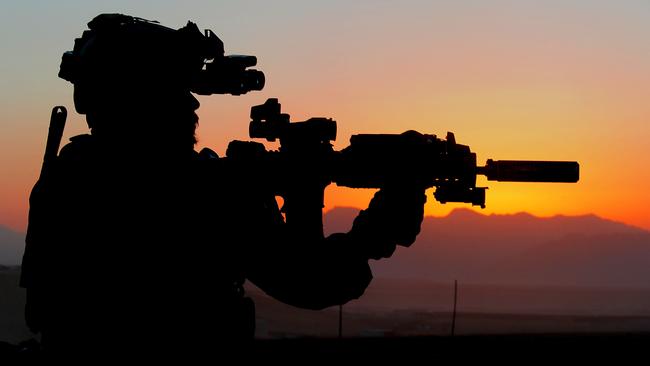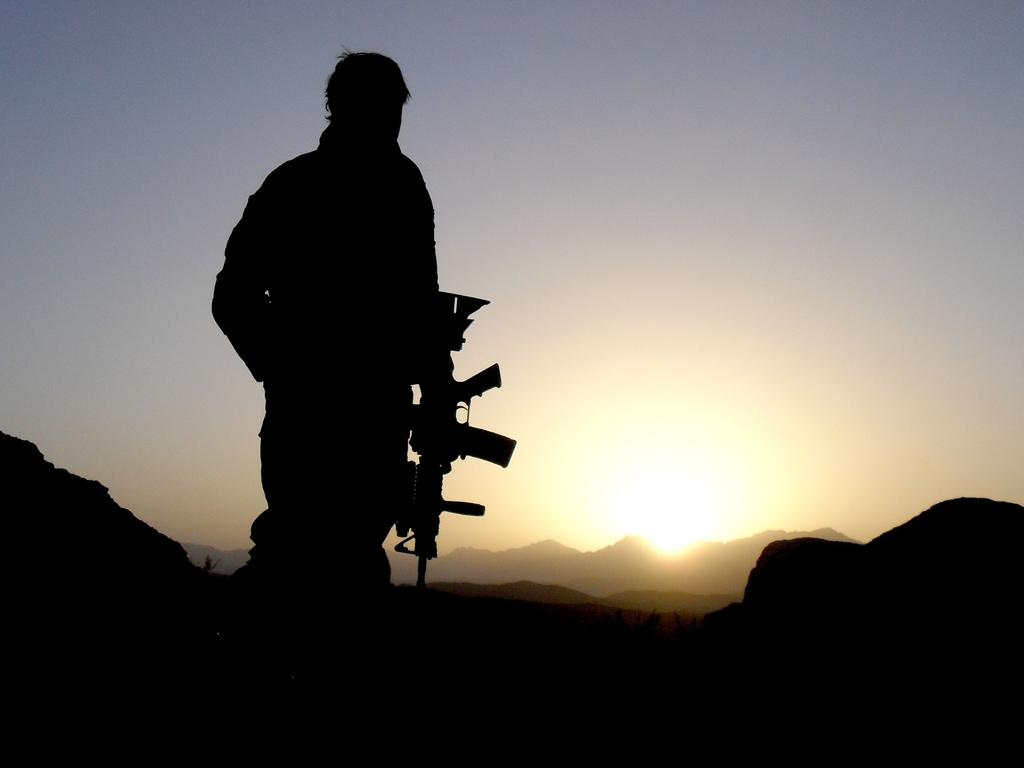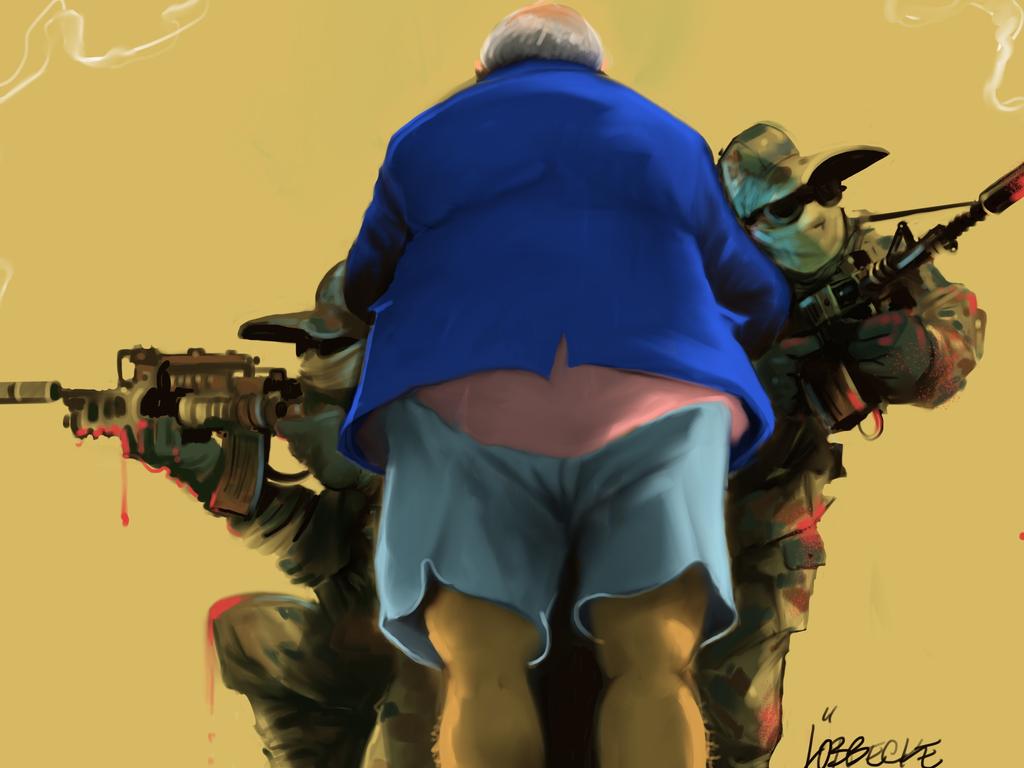Failure of leaders in punishing many for sins of the few

I’ve been contacted by dozens of current and former service people in the past week. Many just needed to talk about the report, talk through their experiences on deployment, the battle they had when they returned home and to ask what happens next.
Those responsible for crimes must be held to account. All sides of politics and the commanders of the Defence Force are united in calls for justice to be done, and to be seen to be done, here at home but also in Afghanistan, the country we went to assist.
Inspector-General Brereton made 143 recommendations, including referring individuals to the Office of the Special Investigator to consider criminal cases. But among the recommendations was one that called for all personnel who served in the Special Operations Task Group from 2007-13, more than 3000, to be stripped of the Meritorious Unit Citation.
This recommendation, I believe, punishes the wrong people.
We now know the federal government quietly changed the rules on MUCs in July in anticipation of the findings of this report. This betrays proper process and displays a failure of national leadership to handle these issues fairly and sensitively.
It appears politically convenient to strip 3000 people for the sins of a minority. And I do not for one moment downplay those sins. But I cannot understand how our political and ADF leaders can, on the one hand, call for Australians not to tar the Defence Force and veterans with the same brush as these 25 alleged criminals, while at the same time punishing thousands of service people deployed to war over seven years.
More than 30,000 Australians have served in Afghanistan. About 3000 of those served with the SOTG at some point between 2007 and 2013. Twenty-five soldiers are accused of committing crimes, less than 1 per cent of the SOTG. Ninety-nine per cent of the people who worked in that group, from different units and services, represented Australia with extreme bravery, dignity and moral courage. They did us proud by upholding the highest standards while on active duty, representing our country. They should rightly be highly commended for their work and willingness to risk their lives for the rest of us.
We’re now hearing stories about children in schoolyards being mocked because they have a parent in the ADF. I’ve heard from many unhappy veterans whose mental health is now more precarious having been “triggered” by these events and I’ve heard from mental health professionals who are seeing this surge.
“There were times in Afghanistan where the Afghan army were going to execute prisoners so we took them with us instead and saved their lives,” an SOTG veteran told me. “No one is talking about all the good stuff we did.”
As many have pointed out, governments were happy to keep sending the Special Air Service Regiment on repeated deployments to Afghanistan, in part due to their skill and the belief we’d lose fewer Australian lives than if conventional forces were deployed. This played a part in setting the conditions of colossal and cumulative pressure that undoubtedly had an impact.
There are lessons to be learned all the way up the chain of command and into the executive. This does not, nothing can, excuse the terrible crimes, but leadership, including the government, cannot be entirely absolved and changes must be made to ensure such atrocities are never repeated. I know those in the special forces to be passionate, patriotic Australians who have made enormous sacrifices for their country. Their long-term success in numerous campaigns is the result of high morale, high intelligence, finely tuned skills and close teamwork. The alleged and serious failures, mostly in the SASR, do not represent the best traditions of this regiment, or ex-serving members.
The MUC is a collective group decoration awarded to members of military units or in this case a task group drawn from many units. It doesn’t cover any specific or individual action, but rather recognises “sustained outstanding service in warlike operations”.
Without question, this award must be forfeited by anyone found guilty of war crimes.
But it’s wrong to strip the MUC from more than 3000 Australians, the overwhelming number of whom served with distinction. It’s wrong to strip it from whistleblowers who acted with immense bravery under pressure to expose what happened. It’s devastating to strip it from those mutilated by improvised explosive devices or killed in action and had nothing to do with these crimes. Their sacrifices should not be politicised, or denigrated. Like the haranguing of Vietnam War veterans in the 1970s and 80s, we can already see a mental health toll that will grow if our national leaders don’t handle this with care. This is an opportunity to tell our service people we respect, appreciate and value the risks and losses they experience on our behalf. Let’s not hang them all out to dry when the going gets tough.
Just consider the sterling work of the ADF over the unprecedented operational tempo of the past 20-odd years and just this year during the twin catastrophes of the bushfires and COVID-19. They are continually maintaining a force that can aid the civil power within our borders while protecting us and our interests abroad.
To have the greatest positive impact on our region and in the world, we need to set the highest possible standards. The ADF has already begun the hard work of reckoning and rebuilding to prevent these destructive cultures recurring. Justice will not be served by indiscriminately punishing our ADF personnel and veterans who have served Australia with distinction. In this dark moment, more than ever, we need to tell them loudly and clearly we’re grateful to them and we recognise their hard work. Lest we forget.
Luke Gosling is the federal member for Solomon and a former army officer.







It’s been a heavy period of reckoning for the nation this past week after the revelations of alleged war crimes were laid bare in Inspector-General Paul Brereton’s report. The allegations have left Australians struggling to understand what was done in our name.